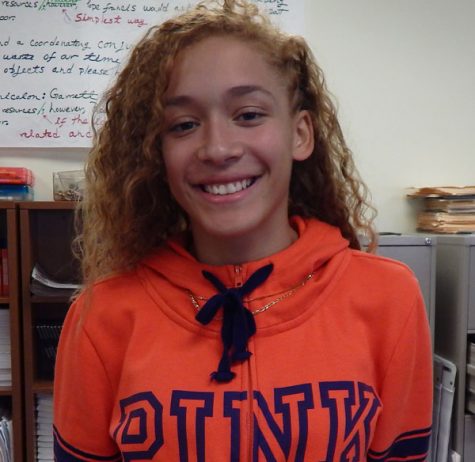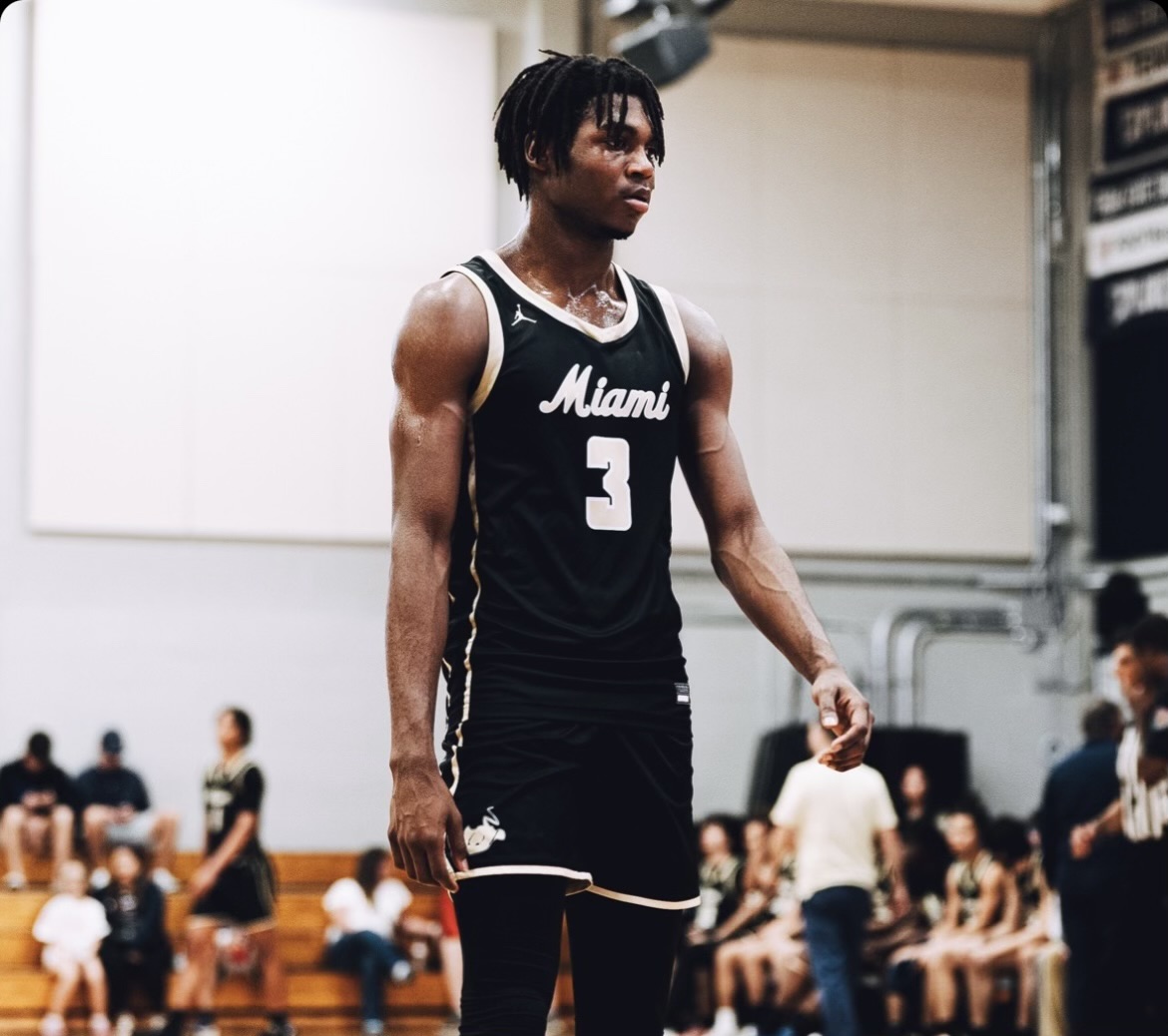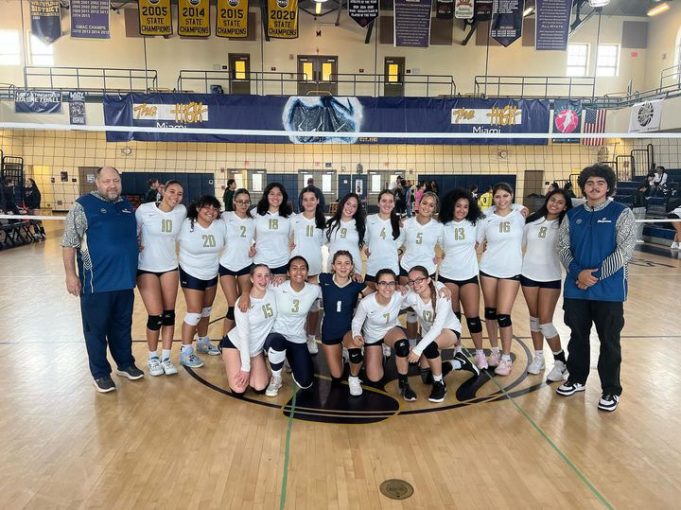Put in the Work!
December 17, 2018
After 2:20 most kids go home to eat or sleep but a whole other group of other students stick around until their sports practice begins and stay here at Miami High til 6 or 7.

Time of day
Many athletes dedicate every day to their sport. Senior soccer player Alexander Lara spends hours after school practicing. He said, “I only have time to eat when I get home, shower and sleep.” Similarly, junior basketball player Collen Buckner plays basketball every day and has no time for anything else.
School hours plus practice hours
Juggling sports and education is the hardest part of playing a sport in school. Senior volleyball player Emily Galeano says, “It’s hard to play a sport since you stay in Miami High til 7 because of practice, plus the time you have to get home walking or finding a ride.”
On the other hand, junior basketball player Darria Whitley believes sometimes it’s hard since you get home late from practice, but still says, “You have to make time.”
Some student athletes are good at multi-tasking. Sophomore soccer player Brianna Perez says, “It’s not very hard for me since I know how to handle time and calculate how long it takes for my homework. I even try to go to tutoring after school since practice starts at 3:30 and get some homework done.”
Fun or Serious?
Sports are fun to do, but some athletes want more than just “fun”. Junior basketball player Juan Garcia wants to go farther in basketball and turn it into a career in the future. Junior basketball player Randy Villalon also says, “Having that as a career will be like a dream come true.”
On the other hand, junior basketball player Collen Bucknor is playing basketball now to get into college, but after college, she wants to get into a private investigator career. Senior soccer player Alexander Lara said, “If I make it, I do, and if I don’t, I don’t. It’s either way for me.”
Double the job
Some instructors at Miami Senior High School teach during the day and coach a team afterschool. Boys basketball coach Mr. Wilson teaches Algebra 1 to freshmen plus coaches. He says, “It’s difficult, but it’s a different type of responsibility. You must worry about the 250 kids throughout the day, and then after, take extra 30 to be responsible for.”
Football coach Mr. Bernard, who co-teaches 10th grade English, says it’s very difficult to teach and be a coach. “The fact that I teach 10th grade English, which is a very important subject in high school, is the hardest part,” he said.
Assigned or Decided?
Coaches do what they do for several reasons. Flag football and JV basketball Coach Junior wasn’t assigned to coach the sport; he chose to. He said, “I just wanted to give back to the kids.” Coach Wilson also decided to coach but for a slight different reason. He said, “I want to help young kids achieve their dream to play college basketball, and the whole idea of discipline in basketball can provide the structure for their future in life.”
School vs After School
Some coaches believe that what they do in the classroom is similar to what they do on the field. Coach Bernard just uses one way to handle kids both during school hours and after. He just stays on top of them, not giving them lee-way to do anything wrong. However, he disciplines his athletes more severely than his students. “For example, if a student who is also an athlete of mine misbehaves in school or class, at practice he will have to crab and roll, compared to a student who misbehaves in the classroom and will just get a phone call home.”
Athletes vs Students
Coach Wilson does have similar ways where he disciplines his athletes and students, but not always the same. He said, “In the beginning of the year all my students already know the rules and what is expected of them throughout the year. If the rules are broken, then we proceed with correction of face to face conversation before we pursue administration or a phone call home, so I usually don’t have many issues in class with students. In basketball, I tell them what they’re doing is wrong, and if they don’t handle that correctly and can’t conduct themselves accordingly, they hit the weight room and get kicked off practice.”
Favoritism
Some athletes here in Miami High get favoritism from their teachers. Junior basketball player Juan Garcia states, “On tests, they help me study extra for a better grade or sometimes even push up my grade since they know I’m an athlete and have a lot on my plate.” Another junior that plays football and would like to remain anonymous says he gets the answers to some classwork when he doesn’t attend class because of games.
On the other hand, there are athletes that feel like they don’t get any special treatment. “I go to tutoring to get my grades up and believe that’s the fair way,” said junior basketball player Randy Villalon. Girl basketball player Carla Colon, who is a senior, says they don’t give her favoritism. “They treat me as a normal student,” she said.






Tais • Dec 19, 2018 at 1:43 pm
Awesome story Andrea!!!